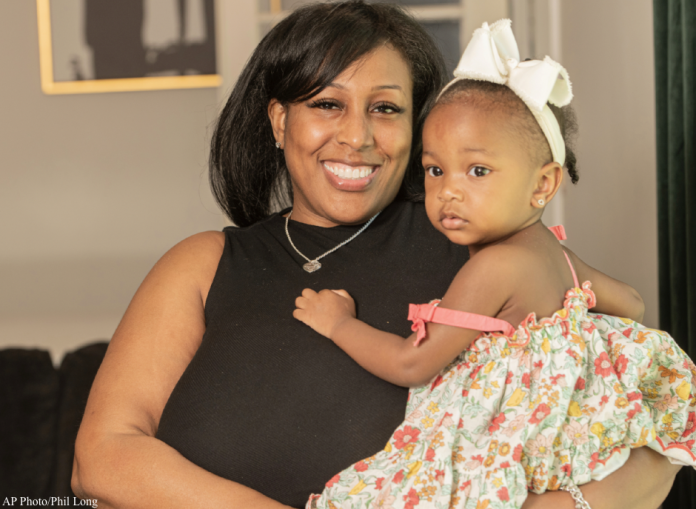by Alexandra Olson and Claire Savage
AP Business Writers
NEW YORK (AP) — Victoria Cornejo Barrera thought the legal helpline for workers sounded too good to be true and wondered if it was a scam.
A month earlier, Cornejo Barrera had been forced to take leave from her job as head custodian at a South Carolina high school after she turned in a doctor’s note asking to be exempt from tasks like climbing ladders and lifting more than 20 pounds because she was pregnant.
She spent a month crying and blaming herself for thinking she could keep her job while pregnant. She used up all her accumulated paid time off because she couldn’t afford to go without a paycheck. Then she got a notice from human resources saying she would have to start paying $600 a month to stay on health insurance while on unpaid leave.
“I was feeling so guilty. I was feeling like my pregnancy was the problem,” Cornejo Barrera said.
Searching for help online, she came across the website run by the legal advocacy organization A Better Balance, explaining about a federal law called the Pregnant Workers Fairness Act that entitled her to the types of accommodations she had been seeking. It had gone into effect in June 2023, a month before she was pushed out of her job.
Was the law really on her side? Cornejo Barrera called the helpline.
A new law’s complicated first year nearly 500 workers in similar circumstances have contacted A Better Balance’s legal helpline in the year since the implementation of the Pregnant Workers Fairness Act, which strengthens the rights of workers to seek accommodations for pregnancy-related needs. The experiences of those workers tell a complicated story about the impact of a new law that is still unfamiliar to many employers, according to a report released Tuesday by A Better Balance–the organization that spearheaded a decade-long campaign for the law, which Congress finally passed in December 2022.
The majority of those workers, mostly women in low-wage jobs, swiftly obtained accommodation after learning about their rights and invoking them with their employers, said Dina Bakst, co-founder and co-president of A Better Balance. But many women still confronted employers who didn’t know about the law, misunderstood its scope, or simply refused to comply, according to the report.
Charlotte Burrows, chair of the Equal Employment Opportunity Commission, which enforces the law and conducts outreach to employers and labor groups, said raising awareness is a major challenge.
“I don’t think we’re where we need to be yet,” Burrows said. “We’re going to be trying very hard to make sure that we close that information gap for everybody.”
A bitter legal battle over whether the law covers abortion, however, is complicating its enforcement.
The dispute centers on EEOC regulations that took effect Tuesday detailing how employers should comply with the law, which included abortion among the pregnancy-related conditions that entitle workers to time off and other accommodations.
On Tuesday, a federal judge in Louisiana temporarily prohibited the EEOC from enforcing the abortion provision of its rules against employers located in Louisiana and Mississippi or against the U.S. Conference of Catholic Bishops and three other religious groups that filed a consolidated lawsuit against the EEOC, arguing that the abortion provision is an illegal interpretation of the Pregnant Workers Fairness Act.
**********
Thank you for reading an excerpt of this article on scoopusamedia.com. To read more of the article, “This law is a lifeline for pregnant workers even as an abortion dispute complicates its enforcement,” please subscribe to Scoop USA Media. Print subscriptions are $75.00 and online subscriptions (Print, Digital and Vizion) are $90. (52 weeks/1 year)


